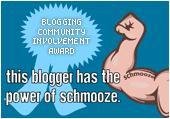an excerp from Soulmates pp.76-77
Chapter 2 - Intermingled Souls: The Family of the Soul
"Questions about evil and suffering are the most profound mysteries we can tackle, but blaming our struggling human parents for these utterly deep mysteries distracts us from our own responsibilities. The result is that we lay a huge burden on our parents and other relatives, one they canot bear successfully, and we also avoid facing the mysteries of evil and suffering in our own lives, and as our own individual, life-shaping challenges. James Hillman has made the interesting observation that by divinizing our parents, we dehumanize them. Or, to put it another way, when we idealize the family, we also demonize it. When we resolve our own questions of absolute meaning by reducing them to family dynamics, ultimately blaming our parents for life's difficulties, we dehumanize our parents and oversimpligy the challenge of our own existence.
Philosophers and founders of religion have considered these absolute questions about evil and suffering and have offered far more substanstive answers. Buddhism, for instance, looks for the source of suffering and points a finger at our own cravings. Native American traditions wonder about suffering and understand it as the work of an evil community in the dim past of prehistory, like the Bow clan of the Hopi, whose corruption brought about the destruction of the world. Christianity asks the question and answeres it with the mythological story of Adam and Eve.
What if, instead of thinking obsessively about our own family histories, we looked instead to the old stories for explanations of our suffering? For example, to imagine that Adam and Eve, our mythological parents, are responsible for evil and suffering is first of all, to acknowledge that these matters are not really problems, but rather mysteries. Second, we might recognize that the roots of these mysteries do not lie in any temporal dimension but are eternally located in the human heart, mysteriously part of the human condition." - Thomas Moore
Monday, January 30, 2006
Subscribe to:
Comments (Atom)





